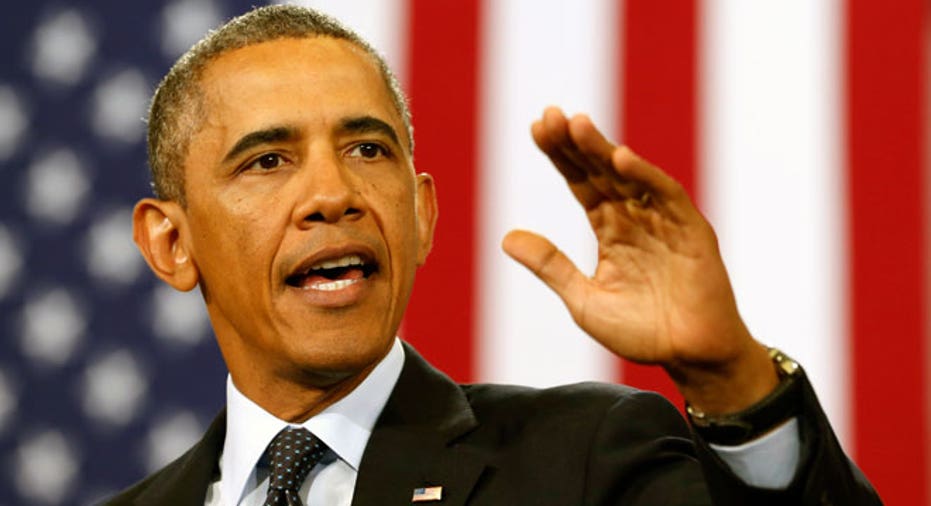Obama Touts Economic Record Five Years After Lehman

President Barack Obama on Monday used the fifth anniversary of the collapse of investment bank Lehman Brothers to tout his administration’s economic accomplishments and to warn Congress against blocking economic recovery by obstructing his fiscal policies.
The U.S. has come a long way since September 2008, the president said, but there’s still a long way to go.
“We are not yet where we need to be,” Obama said. “We need more broad-based prosperity.”
The start of the speech was delayed by nearly an hour as the president received briefings on a mass shooting that left several dead at a Naval yard in Washington, D.C.
In the 20-minute address, Obama decried a “winner take all economy” in which a small fraction of the top 10% of wage earners continue to earn more while the middle-class struggles, he said.
Obama asked Congressional Republicans not to approve further cuts in funding for education and social services, saying, “These aren’t the policies that will grow the economy faster.”
The president blamed the mandated federal spending cuts known as the sequester for holding back job creation and economic growth, and argued in favor of targeted budget cuts as opposed to across-the-board cuts.
In addition, Obama reiterated his position that he won’t negotiate with Congress over the debt ceiling, which carries a threat of default, and warned Congress against shutting down the government this fall while lawmakers squabble over next year’s budget.
“Even the merest suggestion of default stunted our economic growth,” the president said.
He also defended the health-care reform bill that was the signature piece of legislation of his first term. Some Congressional Republicans have vowed to repeal the law known as Obamacare.
Since the worst of the crisis, Obama said the economy has added 7.5 million jobs, the unemployment rate has fallen and financial institutions “are safe.” Meanwhile, health-care costs are growing at the slowest rate in 50 years, he said.
“All this has happened as a result of the resilience of the American people,” he said.
Lehman’s collapse after betting big on particularly risky elements of the overheated U.S. housing market was perhaps the pivotal event of the 2008 financial crisis that battered global credit markets and nearly wrecked the world’s economy.
“It’s hard to remember everything that happened during those months,” Obama said.
Rather than allow other big financial institutions to fail, in late 2008 the U.S. government approved a massive $700 billion bailout for the sector, a controversial decision that proved extremely unpopular as time moved on and memories of those turbulent days receded.
The crisis was caused by a U.S. housing bubble that saw home values soar artificially across the country. Weak lending standards and government policies that promoted homeownership allowed millions of people access to mortgages they couldn’t afford. When those borrowers began to default en masse on those home loans, the impact quickly spread to Wall Street, where mortgages had been packed into sophisticated investment vehicles.
Lehman, which filed for bankruptcy on Sept. 15, 2008, had bet heavily on mortgage-backed securities.
The crisis, which sparked a deep recession, widespread layoffs, a 10% unemployment rate and record numbers of home foreclosures, raised questions over the size of the world’s large banks and prompted regulations to rein in risk taking by those banks.
Since then unprecedented intervention by the government and the Federal Reserve, including nearly five years of near-zero interest rates and bond-buying programs that have pumped trillions of dollars into the economy, has sparked a powerful stock market rally and a rebound in the key housing sector.
But despite a decline in the unemployment rate to 7.3%, questions remain about the health of U.S. labor markets. And while lots of regulations affecting the banking sector have been proposed and some passed into law via the Dodd-Frank banking reform bill, many critics of Wall Street question whether the reforms are strong enough to prevent another similar crisis.



















